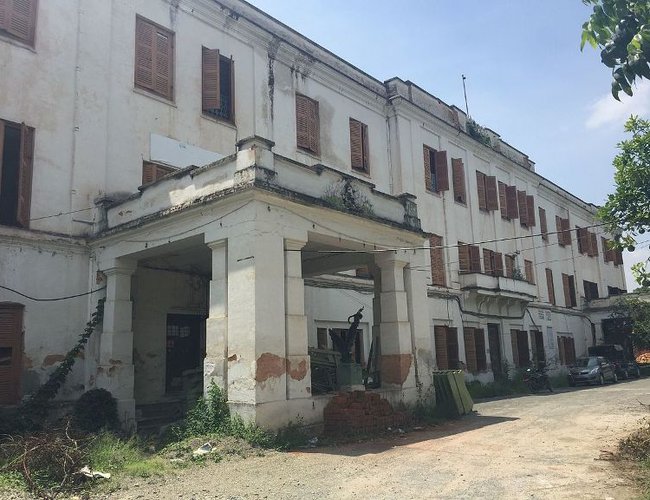
Many years ago a certain Yeti Jebi Pustak was started in Nepal with the objective of printing paperbacks. It started the trend of detective novels of Dirgabahu (Shridhar Khanal’s) Inspector Kharel. Such work was marketed at the glorious price of Nepali Rupees 3/- per copy. Because of small sales, lack of distribution and limited readership, the company soon went into liquidation. Such was the position of book publishers and sellers in Nepal. Another difficulty of Nepali publishers was that whilst books printed in India had a ready market in Nepal, the movement of printed matter from Nepal to India was restricted at the borders.
At one time I was involved in the publication of books for health care workers and there was at the Institute of Medicine a section responsible for that. We translated and had printed the world-famous book ‘Where There is No Doctor’ by David Werner which then became a bestseller. Many families had a copy in their houses and I am sure that this particular book helped in increasing awareness about health in Nepal. This book was distributed to health institutions. There was at that time the objective of having a library or a reading room at each of the VDCs of Nepal.
Currently, there is much discussion in the media about the taxation of imported books by the government. Of course, a lot of the imports may be paperback or even hardcover books which have been bought at reduced rates from the wholesaler by Nepali book importers. What happens in countries such as the USA, UK or even India where books in English are published is that a hardcover book will be selling rapidly for a couple of weeks and perhaps after a couple of months the sales will taper off. After a year the paperback is issued to booster sales. However a recent book by Mary Lea Trump on her uncle President Donald Trump and titled ‘Too Much & Never Enough’ sold a million copies on the first day of its release! Such performance is impossible in developing countries.
Though, because of the pandemic a certain amount of online teaching has been done in Nepal, we have a lot to improve in its implementation as there are many deficiencies in our setting. In the USA, they are going to be doing Online classes. I have been told that Harvard University, usually after two years puts its lectures Online so that students and even the public have easy access to it! We in Nepal will have to follow this trend sooner of later. Sadly the trend of publishers in our part of the world is to print books written by academic specialists who are examiners in the final passing out examinations! To counter this one essential facility is the availability of online books so that students have a wide choice. The reality however is that some studies have shown that even with the availability of e-books, there is still a market for the printed word and that books are not going to be an object of the past.
There has been a tremendous increase in the demand for books both in Nepali and English. What publishers in Nepal have to ensure that the printing and production of books are done within the country and not outside for e.g. Varanasi. It is only with commitments such as this that the book industry as a whole will develop in Nepal.
So reflecting on what is happening in Nepal the situation now seems to be that there is a curb on bringing in matters of knowledge into the country from outside. Not only that, but the concept of providing a reading room or library in each of the VDC / or wadas in various parts of the country also is never going to happen. What can one expect when the daily local newspapers give the news that the planned new building of the Nepal National Library at Jamal and of which the blueprint has been prepared at substantial cost, is likely to be shelved. The paper even stated that this may be because of the vested interest of certain groups. Does this mean that the project for the building of a modern, well-equipped library in the heart of Kathmandu will never see the light of day? This is surprising for our PM was an ardent bibliophile during the years that he spent in prison!
The National Reconstruction of Nepal following the massive earthquake of April / May 2015 as far as the centers of learning is thus not likely to be ever completed. The books at Harihar Bhavan in Lalitpur first suffered the ravages of the earthquake and they were struck with the vagaries of nature such as rain, dust, heat, mice, silverfish and even termites. Stuffed perhaps in gunny or empty cement bags it is possible that these have been shifted to empty garages, rooms, or attics of Mahendra Bhavan at Sanu Gaucharan in Kathmandu. Many of these items, perhaps some priceless will never see the light of day!
What are our elites in the top echelons of power trying to do? Rana PMs from Jung Bahadur, Bir Shumsher, Dev Shumsher and Chandra Shumsher took steps for the enlightenment of Nepalis by starting schools. Kaiser Shumsher donated his residence and his personal library for the benefit of the nation. King Mahendra started two universities. Now one feels that Big Wigs at the helm of power are trying to stop the further spread of knowledge by putting obstructions in the path. How else should one take this step of highjack the building of the Nepal National Library building at Jamal? They should realize that this is an anti-people step and one not likely to be accepted by the people at large. May the Goddess Saraswati enlighten them so that they rectify their steps.
The author writes fiction under the name of Mani Dixit. Website: www.hdixit.org.np. Twitter: @manidixithd

Hemang Dixit
The author writes fiction under the name of Mani Dixit. Website: www.hdixit.org.np. Twitter: @manidixithd
- Top Heavy
- Sep 20, 2023
- Most Able?
- Sep 04, 2023
- Changing Times
- Aug 21, 2023
- Nepali Shenanigans
- Aug 03, 2023
- Budget Naataks
- Jun 29, 2023
















